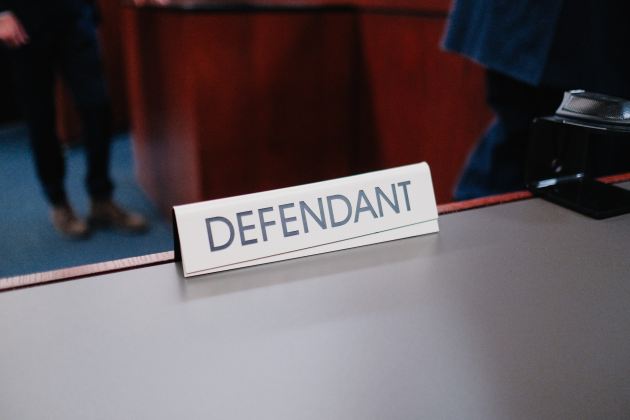Ethereum (ETH) has faced some regulatory turmoil amid rumors of a rejection of ETH spot exchange-traded funds (ETF) in May. The second largest cryptocurrency has also been in the spotlight after a key component in its ecosystem, Consensys, sued the US Securities and Exchange Commission (SEC) for “unlawful seizure of authority” over the asset.
The lawsuit sparked different conversations, including the SEC’s regulatory inconsistencies and speculation about the relationship between the US agency and people close to Ethereum.
Does Consensys Need Prayers?
On April 25, blockchain software company Consensys filed a lawsuit against the US SEC. The lawsuit seeks a court ruling that declares ETH is not a security.
The news opened a broad discussion among crypto community members about the implications of the demand. Moreover, it reignited the ETH Gate discussion, which saw Ripple’s CTO David Schwartz and Cardano’s Founder Charles Hoskinson in a heated back-and-forth on X.
A crypto figure has deemed Consensys’ demands as unrealistic amid the discussions. Pseudonym crypto sleuth Dr. Huber shared the “Prayer for Relief” section of the lawsuit, asserting that the software company “really needs some prayers.”
Besides classifying Ethereum as a non-security, Consensys is praying for the court to declare that any investigation or enforcement on the company over ETH transactions being classified as security would exceed the SEC’s authority.
Similarly, the firm demands that any action against the company based on its operating as a “broker” under the Exchange Act through its MetaMask wallet would be outside the SEC’s Authority.
Additionally, Consensys is asking for a “permanent injunctive relief prohibiting the SEC and its officers and agents from pursuing any investigation or enforcement action” related to the Swap of Staking features of its MetaMask software.
According to the crypto figure, the chance of a court giving a company and its subsidiaries “a general and permanent lifetime free pass against SEC Securities investigations” is minimal.
The crypto sleuth considers that approval of Consensys’ requests would mean that “no ETH transaction could ever be considered a securities offering,” which reduces the probability of a ruling in favor of the company.
Unclear Regulatory Framework For Cryptocurrencies
Ethereum’s classification by the regulator is among the topics where clarity has been missing. Under the previous SEC Chair Jay Clayton, the second-largest cryptocurrency was not considered a security.
Moreover, in his 2018 speech, former Director of the Division of Corporation Finance Bill Hinman classified Ethereum and Bitcoin as non-securities.
However, recent reports allege that the regulator has considered ETH an “unregistered security” for over a year. The SEC has been seemingly investigating the cryptocurrency status with “unusual secrecy” since March 2023.
The definite classification of digital assets as security could have significant implications for the crypto industry. The Consensys lawsuit has highlighted the SEC’s unclear regulatory framework.
The agency’s inconsistency was pointed out by the Chairman of the Financial Services Committee, Patrick McHenry. In a Tuesday statement, Chair McHenry affirmed that SEC’s current Chairman Gary Gensler “knowingly misled Congress.”
#ICYMI: New court filings indicate that @SECGov Chair Gary Gensler knowingly misled Congress when pressed on the classification of #ETH at a @FinancialCmte hearing to conduct oversight of his agency.
Read my full statement pic.twitter.com/8osMpbY6Iu
— Patrick McHenry (@PatrickMcHenry) April 30, 2024
Per the statement, Gensler refused to answer questions regarding the SEC’s classification of ETH, which shows an “intentional attempt to misrepresent the Commission’s position.”
An adverse ruling would contradict the SEC’s previous guidance and extend the agency’s regulatory grip. Similarly, it would also dispute the Commodity Futures Trading Commission (CFTC) classification of the asset as a commodity.
Ultimately, it would show “yet another example of the arbitrary and capricious nature of the agency’s regulation by enforcement approach to digital assets.”





